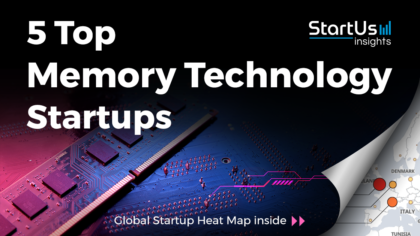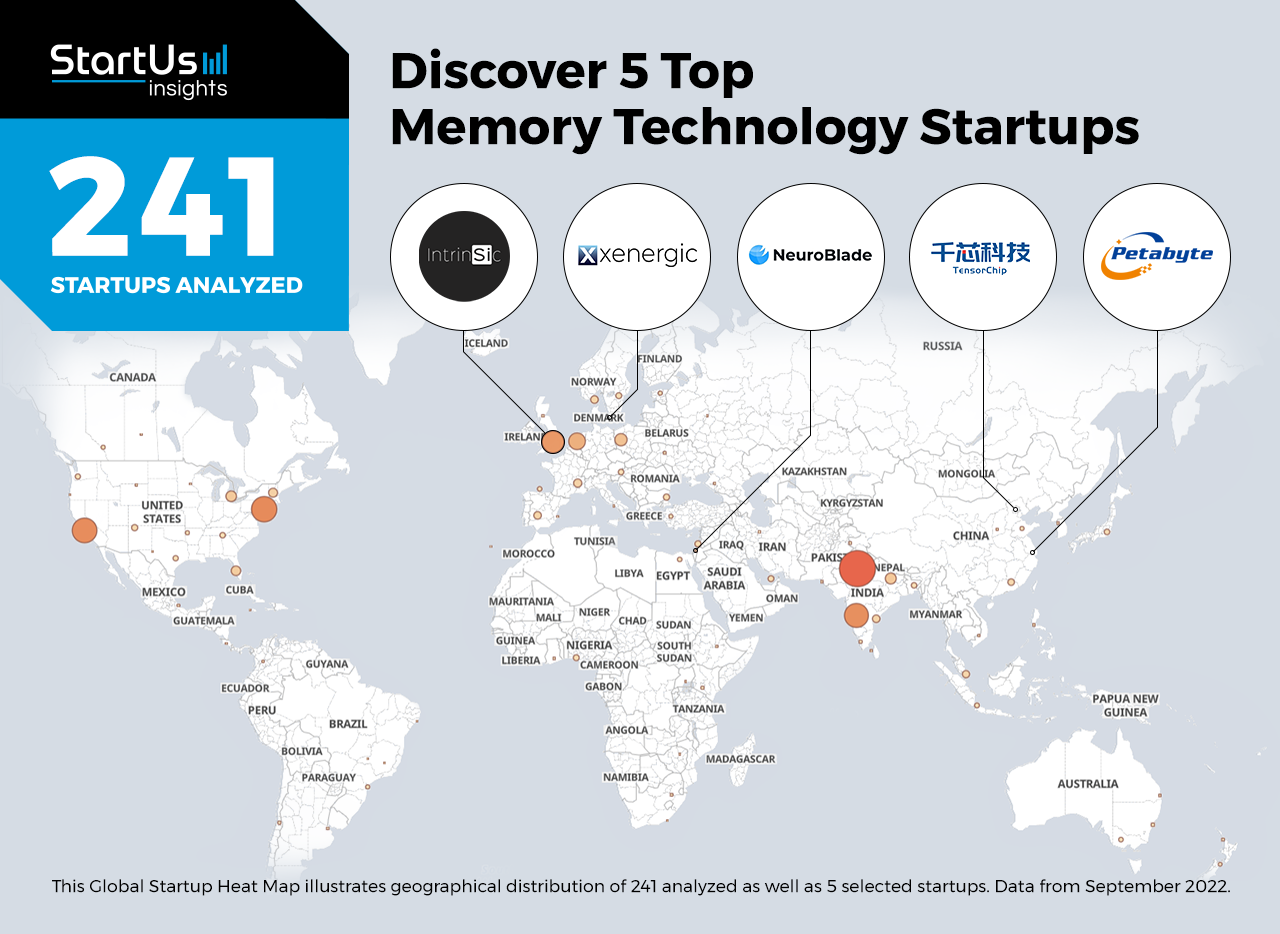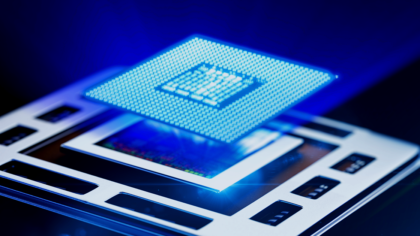Emerging memory technology solutions and startups focus on making it easier to build, process, and integrate memory systems – increasingly important for building the next generation of electronic devices.
Out of 241, the Global Startup Heat Map highlights 5 Top Memory Technology Startups
Startups such as the examples highlighted in this report focus on low latency, in-memory processing, and novel architectures. While all of these technologies play a significant role in advancing electronics manufacturing, they only represent the tip of the iceberg. This time, you get to discover five hand-picked memory technology startups.
The Global Startup Heat Map below reveals the geographical distribution of 241 exemplary startups & scaleups we analyzed for this research. Further, it highlights five electronics startups that we hand-picked based on scouting criteria such as founding year, location, funding raised, and more. You get to explore the solutions of these five startups & scaleups in this report. For insights on the other 236 memory technology solutions, get in touch with us.
TensorChip builds In-Memory Computing Chips
Founding Year: 2019
Location: Beijing, China
Innovative with TensorChip for Reconfigurable Memory Computing
Chinese startup TensorChip develops artificial intelligence (AI)-powered in-memory computing chips. The startup’s proprietary reconfigurable memory-computing architecture enables chip and algorithm upgradation at a low cost. It also improves performance compared to application-specific integrated chips (ASIC). The startup’s chips thus enable high throughput, low latency AI computing in the fields of autonomous driving, smart security, and cloud computing.
Intrinsic provides Low-Power Resistive Random Access Memory (RRAM)
Founding Year: 2017
Location: London, UK
Partner with Intrinsic for Embeddable Non-Volatile Memory
UK-based startup Intrinsic makes RRAM memristive devices based on silicon oxide (SiOx) wafers. They are embeddable on industry-standard complementary metal oxide semiconductor (CMOS) processes at advanced process nodes. Consequently, this enables advanced in-memory computing by developing RRAM prototypes that are faster, economical, and more energy-efficient than flash memories. Intrinsic’s solution finds applications in memory-intensive processes such as edge computing, the internet of things (IoT), AI, and neurotropic computing.
Petabyte develops Ferroelectric RAM (FRAM)
Founding Year: 2018
Location: Wuxi, China
Use Petabyte’s solution for FRAM Memory Chips
Chinese startup Petabyte manufactures FRAM. The startup leverages novel materials and architecture to develop its FRAM with capabilities comparable to dynamic RAM (DRAM) and flash memory. These chips feature faster read-write speed, accurate byte addressing, durability, non-volatility, and low power consumption. Further, they integrate with existing products to increase their storage density and workability in harsh environments as well as reduce power failure. The startup’s chips increase the performance of automotive equipment, industrial control systems, medical instruments, and industrial robots.
NeuroBlade offers Hypercomputation for Data Analytics Workloads
Founding Year: 2018
Location: Tel Aviv, Israel
Work with NeuroBlade for Advanced System Architecture & Hypercomputation
Israeli startup NeuroBlade empowers the next wave of digital transformation by developing a new standard for analytics acceleration for large data. The startup’s hardware accelerator, HEQS (Hardware Enhanced Query System) is a new standard for query processing by utilizing its proprietary memory technology, XRAM to increase the memory-to-compute bandwidth ratio. The Insights Data Analytics software suite provides all the required software to enable high-performance data analytics on Xiphos hardware and seamlessly integrate the existing ecosystem. Further, NeuroBlade’s chips offer augmented computational efficiency and data analytics for network data centers and end devices.
Xenergic advances Static Random Access Memory (SRAM)
Founding Year: 2017
Location: Lund, Sweden
Reach out to Xenergic for Low Power Memory Technology
Swedish startup Xenergic develops low-power, technology-agnostic system-on-chip (SoC) SRAM memory. The startup’s memory compiler, MemoryTailor, customizes memory configuration ranging from ultra-low power to ultra-low leakage based on requirements. These tailored memory intellectual property (IPs) empower SoCs, IoT devices, sensors, wearables, and other components with form factor restrictions.
Where is this Data from & how to Discover More Electronics Startups?
The insights of this data-driven analysis are derived from our Big Data & AI-powered StartUs Insights Discovery Platform, covering 2 500 000+ startups & scaleups globally. The platform gives you an exhaustive overview of emerging technologies & lets you scout relevant startups within a specific field in just a few clicks. To explore electronics technologies in more detail, let us look into your areas of interest.
Staying ahead of the technology curve means strengthening your competitive advantage. That is why we give you data-driven innovation insights into the electronics manufacturing industry. For a more general overview, download our free Electronics Manufacturing Innovation Report to save your time and improve strategic decision-making.









